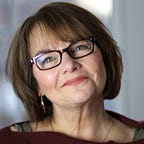How to Encourage Voter Registration & Voting
“Just because you do not take an interest in politics doesn’t mean politics won’t take an interest in you.” — Pericles
In this time of societal gnashing of teeth — whatever one’s political inclination — it seems there is at least one thing almost all citizens with a patriotic heart can agree on: voting is not only important, it’s the most reliable way to make a yearly difference in the country. According to Ballotpedia:
- In 2018, 102 congressional races (12 Senate and 90 House) were decided by less than 10 percent. In 2016, 42 were decided by the same margin, and in 2014, 56 were.
- In 2018: 50 congressional races (five Senate and 45 House) were decided by less than a 5 percent margin. In 2016, there were 22 such elections, and in 2014, 31.
- Of the 102 congressional races in 2018 decided by a margin of less than 10 percent, the Democratic candidate won 49 of these elections, while the Republican candidate won 53. And of the 50 congressional races in 2018 decided by a margin of five percent or less, the Democratic candidate won 24, while Republicans won 26.
Yes, every vote counts.
“One of the penalties for refusing to participate in politics is that you end up being governed by your inferiors.”– Plato
However your political opinion leans, encouraging family, friend, and neighbors to vote is a win. According to an article in Psychology Today, “when Facebook users were shown the “I voted” button alongside a social message that showed which of their friends had voted, they were much more likely to vote than if they were shown an informational message or no votes at all. The researchers found that this social message led to 340,000 extra real-world votes. This number of votes matters, especially since the 2016 election was decided by only 107,000 votes in three states.”
This same article says “The United States has one of the lowest voter turnout rates of all developed countries in the world.” Thankfully the same article lists at least three ways to change this.
“Voter apathy is a civic abdication.”― Charles M. Blow
Rice University Jones Graduate School of Business includes pop-up stores, flash mobs, and Instagram, among other methods in their article: “Innovators Are Finding New Ways To Encourage People To Vote.” The Washington Post cites classroom registration as a good method for getting students to the polls (among other methods.) Ben & Jerry (yes, that Ben and Jerry) cite methods used by other countries that could make a tremendous difference here, including: automatic voter registration for all eligible votes (such as is done in Sweden) and weekend voting.
Just Works encourages companies to help employees register to vote and then get to the polls, outlining steps for this voter-friendly policy. According to CNN, Patagonia is one company that has stepped up to this challenge — and called out for others to follow.
“If American women would increase their voting turnout by 10 percent, I think we would see an end to all of the budget cuts in programs benefiting women and children.” — Coretta Scott King
Vote.org uses technology to simplify political engagement, increase voter turnout, and strengthen American democracy.
ACLU has a lengthy list of ways to increase voter registration.
Business Insider lists eleven ways to increase voter turnout.
The American Bar Association has a list of ways their membership can help.
After reading all the above I am convinced of this: all of us can pick one method (there are some very easy ones here) to utilize if they want to contribute to our democracy. It doesn’t have to be fancy or take much of your time (how about posting “I voted on FB.” According to one study, that alone could make a sizable difference in encouraging others to vote.
“The ballot is stronger than the bullet.” — Abraham Lincoln
“Make a difference about something other than yourselves.” — Toni Morrison
